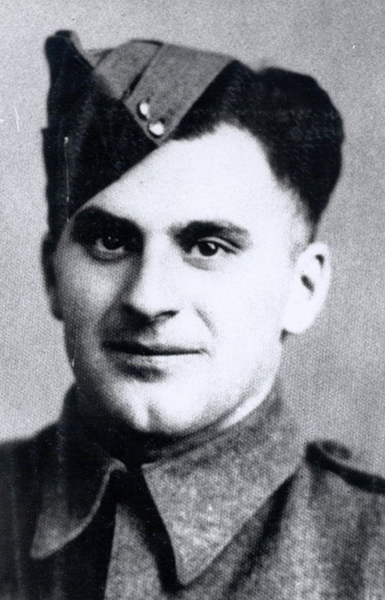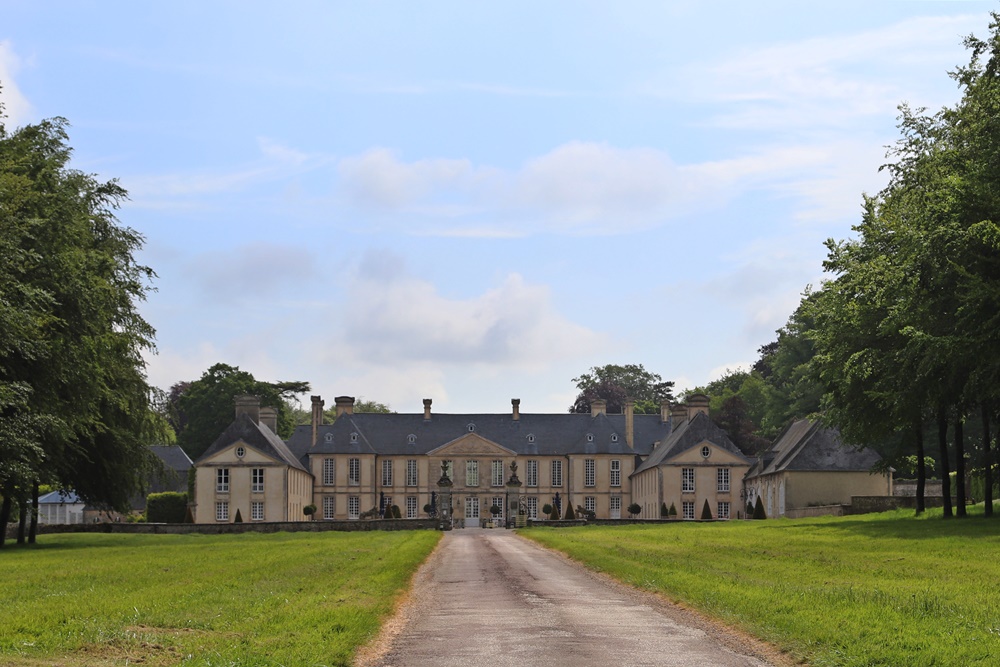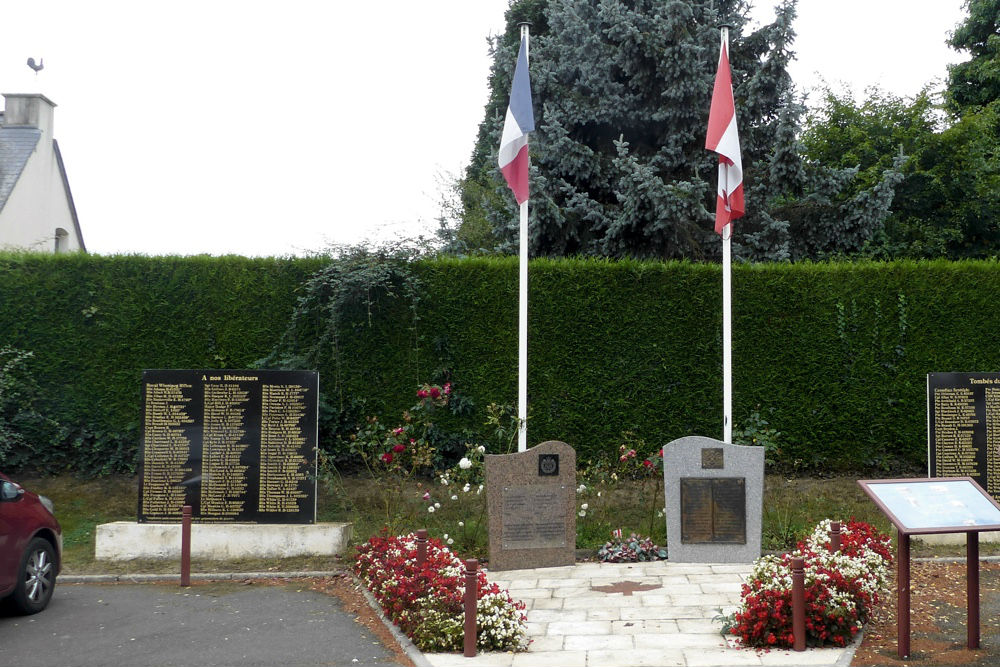Lychowich, John Louis
- Date of birth:
- January 20th, 1918 (Garson/Manitoba, Canada)
- Date of death:
- June 8th, 1944 (Audrieu, France)
- Buried on:
- Canadian War Cemetery Beny-sur-mer
Plot: XV. Row: B. Grave: 16. - Service number:
- A/107694
- Nationality:
- Canadian
Biography
John Louis Lychowich was born to Steve Lychowich and Rosie Hower, immigrants from Galicia and Austria respectively. Raised in a modest Roman Catholic household, John grew up speaking English and Polish, and worked as a carpenter—a trade he pursued both in Manitoba and later in Ontario. By the early 1940s, he had moved to Sarnia, Ontario, where he found employment at the Polymer Corporation, a wartime synthetic rubber plant. It was a stable job for a young man with limited formal education, and he quickly became part of the community, even becoming engaged to a woman from Kitchener.
On May 27, 1943, John enlisted under the National Resources Mobilization Act and was later transferred to the Canadian Army (Active). He trained at various military facilities including Camp Ipperwash and Debert, Nova Scotia, eventually joining the Royal Winnipeg Rifles, part of the 7th Infantry Brigade of the 3rd Canadian Division. His military records describe him as physically fit, with brown hair and eyes, standing 5'11" and weighing 163 pounds. He was noted to have mild mental retardation and some emotional instability, but was still deemed fit for service.
On June 6, 1944, John landed on Juno Beach in Normandy as part of the D-Day invasion. Just two days later, on June 8, he was captured by German forces near the village of Audrieu. Tragically, he became one of the victims of the infamous Audrieu massacre, where members of the 12th SS Panzer Division "Hitlerjugend" executed 13 Canadian prisoners of war in a French orchard. Witnesses later recounted how the prisoners were lined up and shot, with any survivors finished off by pistol shots to the head. John was just 26 years old.
His remains were initially buried in a temporary cemetery and later reinterred at the Beny-sur-Mer Canadian War Cemetery in France. His mother, Rosie Lychowich, received his medals and the Memorial Cross with Memorial Bar.
Do you have more information about this person? Inform us!
- Period:
- Second World War (1939-1945)
- Period:
- Second World War (1939-1945)
- Period:
- Second World War (1939-1945)
Sources
- Photo 1: Operation Picture Me
- - Service record(s)








